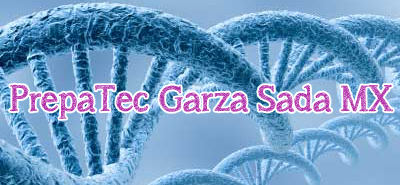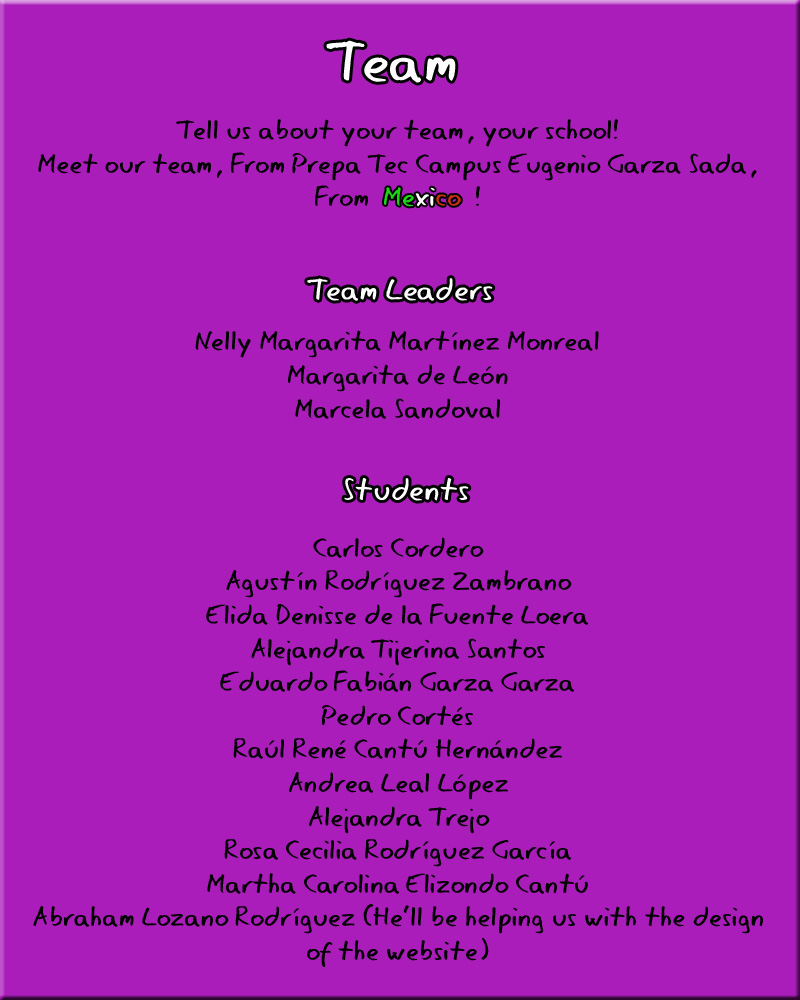Team:PrepaTec GarzaSadaMx
From 2012hs.igem.org
(→Team) |
(→Team) |
||
| Line 18: | Line 18: | ||
[[File:Equipo.jpg]] | [[File:Equipo.jpg]] | ||
| - | |||
| - | |||
| - | |||
| - | |||
| - | |||
| - | |||
| - | |||
| - | |||
| - | |||
| - | |||
| - | |||
| - | |||
| - | |||
| - | |||
| - | |||
| - | |||
| - | |||
| - | |||
| - | |||
| - | |||
| - | |||
| - | |||
| - | |||
| - | |||
| - | |||
| - | |||
| - | |||
| - | |||
| - | |||
| - | |||
| - | |||
| - | |||
| - | |||
| - | |||
| - | |||
| - | |||
| - | |||
| - | |||
| - | |||
===Project=== | ===Project=== | ||
Revision as of 19:44, 15 June 2012
| You can write a background of your team here. Give us a background of your team, the members, etc. Or tell us more about something of your choosing. | |
|
Tell us more about your project. Give us background. Use this as the abstract of your project. Be descriptive but concise (1-2 paragraphs) | |
| Team PrepaTec_GarzaSadaMx |
| Official Team Profile |
|---|
Contents |
Project
What are you working on this semester?
What we want to do is to insert a specific enzyme in the E. Coli for it to be able to create a textile dye, which is known as tyrian purple.
Tyrian purple is known to be the world’s most expensive color, about $3,500 U.S. dollars per gram. This dye is known by the ancient cultures as: royal purple, imperial purple or imperial dye, the colors of the royalty, because it did not fade out, but became more intense with weathering and sunlight. It’s obtained by a specific mollusk, the Bolinus Brandaris, but due to its small size, the Byzantine Empire, which controlled the production of this coveted dye, needed to kill a large number of sea snails to obtain relatively small amounts of dye. Nowadays industries are not allowed to use this dye, even thought its color has been imitated with chemicals, but since it’s nothing more than an imitation it’s not as purely bright and long-lasting colored as the real natural tyrian purple.
With our enzyme applied to the E. coli, the natural tyrian purple dye made by mollusks will be re-created by our E. Coli and therefore no more mollusks would be unnecessarily killed and a bright, long-lasting and really cheaper tyrian purple dye would be available for textile industries.
Notebook
Show us how you spent your days.
Results/Conclusions
What did you achieve over the course of your semester?
Safety
What safety precautions did your team take? Did you take a safety training course? Were you supervised at all times in the lab?
Attributions
Who worked on what?
Human Practices
What impact does/will your project have on the public?
Fun!
What was your favorite team snack?? Have a picture of your team mascot?
<forum_subtle />
 "
"


